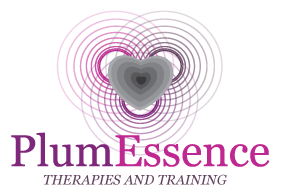This is the 9th in a series of blogs, using answers to pass Mental Health qualifications.
Now, Managing Stress could be a very long post. I’m sure there are whole books written on the subject. There most certainly is not a one-size-fits-all approach to managing stress. This is more a of a round-up of certain strategies, which can all be expanded upon further, in the future, and to finish off the series of blogs about stress.
Healthy strategies that could be used to reduce or manage stress in life.
There are many healthy strategies to help with stress, and it can be quite stressful to find ones that suit a person, however, the most accessible ones will be:
– Learning to take ‘time out’ and recharge, whether that’s making sure you take short breaks in your working day, a day off in a completely different environment or more than a day away. Breaks give us the change to refresh and recharge.
– Eating well and staying well hydrated – by filling our bodies with good, nutritious food and keeping the body, and brain, hydrated we are less likely to become ill, fatigued, have more energy and increase our focus and concentration, all positive attributes to reducing stress.
– Learning relaxation techniques such as gentle exercise, especially in nature, perhaps yoga and Pilates, learning meditation and mindfulness to calm the mind and body.
– Finding someone trustworthy to talk to, either a healthcare professional or a charity organisation or self-help group.
– Seek help for overwhelming chores and tasks at home and at work. Again, this is about being able to admit to the stressful concerns and having the confidence to ask for help.
– Look at whether anxiety issues are really worth it. This could be another issue where someone else can help question why someone is worried, fearful, anxious etc. It could be about accepting that it’s not worth getting stressed over things you cannot control.
- Keep a stress diary / journal
Keeping a stress diary and how you would use it.
The main reason for keeping a stress diary is to be able to identify the symptoms, feelings and causes of stress. A pattern could be emerging enabling focus on finding ways to cope more effectively, with one thing at a time,
Local support available to individuals experiencing stress.
There are a variety of ways to find support within a local community, which could include:
Talking to a GP, asking for help with specific symptoms and advice about anything available to help.
Local support groups could be available for both physical and mental wellbeing, for instance alcoholic support groups, drug rehabilitation, stoke support groups, cancer etc. The list is endless. Many of these could be run by local charity and voluntary organisations.
National organisations such as the Samaritans can be available to offer support, help and guidance.
Local housing associations as well as national organisations such as Shelter could help with housing concerns causing stress.
Citizens Advice Bureaus are available in some areas, who have a whole team of people who can help with specifics relating to legal matters and financial matters for instance.
There will also be private healthcare practitioners and therapists available for a wide range of physical and mental conditions.
All of the above could help in one way, or work together, for the benefit of the person suffering the stress.
Tracey of PlumEssence Therapies and Training is a qualified stress management consultant, mental health first aider, hypnotherapist and body work therapist focusing on helping reduce and alleviate concerns connected to both physical and emotional pain. Tracey is also a teacher and trainer, delivering workshops related to stress and stress-related subjects and delivers accredited mental health courses.
Tracey is available for a no-obligation chat to see how we could work together on 01889 808388 or tracey@plumessencetherapies.co.uk
